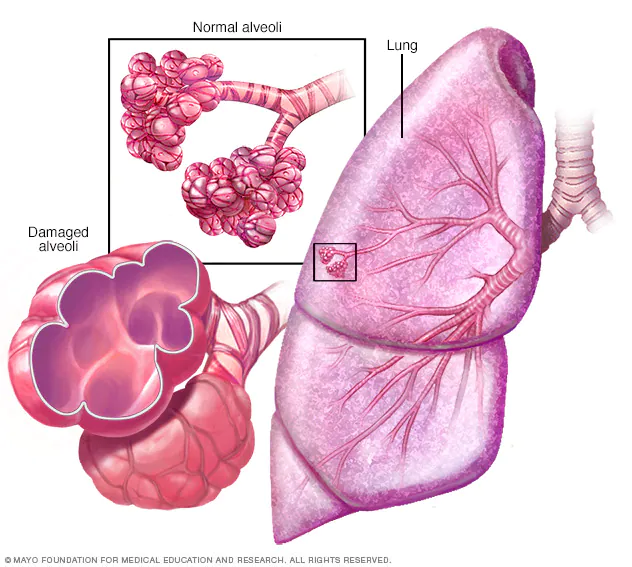In order to understand how exactly COPD affects your body, it is helpful to first understand how your lungs work.
Air travels down your windpipe (trachea) and into your lungs through two large tubes (bronchi). Inside your lungs, these tubes divide like the branches of a tree into many smaller tubes (bronchial tubes) that end in clusters of tiny air sacs (alveoli).
The air sacs have very thin walls full of tiny blood vessels (capillaries). The oxygen in the air you inhale passes into these blood vessels and enters your bloodstream. At the same time, carbon dioxide is exhaled.
Your lungs rely on its natural ability to return to its original shape after being stretched in order to force air out of your body. COPD causes them to lose that elasticity and over-expand, which leaves some air trapped in your lungs when you exhale.
In summary, healthy lungs have:
Elastic, healthy bronchial tubes (no inflammation)
Alveoli functioning as intended by expanding and contracting
Oxygen moving through the alveoli into your bloodstream when you inhale
Carbon dioxide moving from your bloodstream into the alveoli and being expelled when you exhale
In contrast, lungs with COPD have:
Narrow, inflamed bronchial tubes
Alveoli losing their elasticity and shape, making it hard to exhale
Air getting trapped in the lungs from incomplete exhalations
Mucus forming inside your lungs, making you cough more often
Emphysema destroys the fragile walls and elastic fibers of the alveoli. Small airways collapse when you exhale, impairing airflow out of your lungs.
Adapted from COPD - Symptoms and causes, by Mayo Clinic, 2020. Copyright 2020 by Mayo Foundation for Medical Education and Research
Bronchitis causes the tubes in your lungs to become inflamed and narrowed. Your lungs also produce more mucus, which can further block the narrowed tubes.
Adapted from COPD - Symptoms and causes, by Mayo Clinic, 2020. Copyright 2020 by Mayo Foundation for Medical Education and Research



